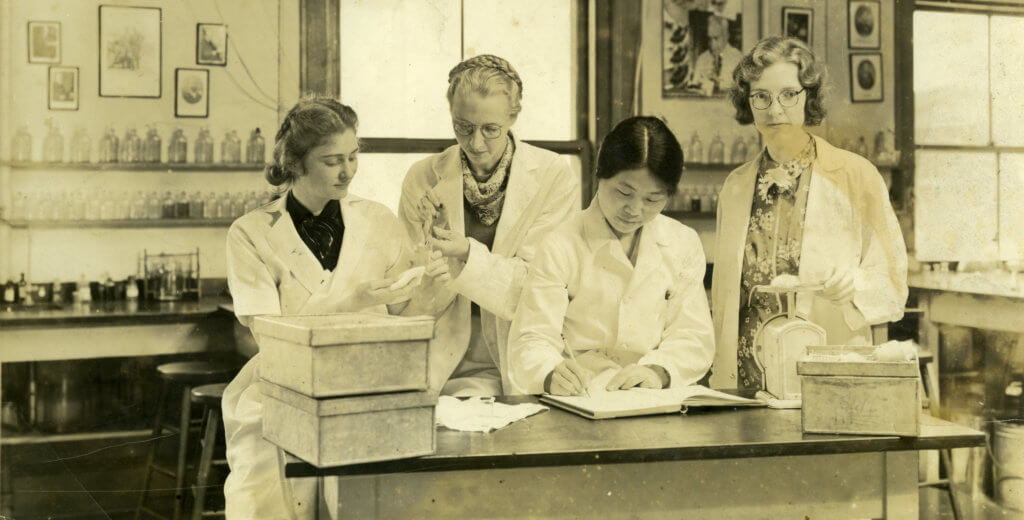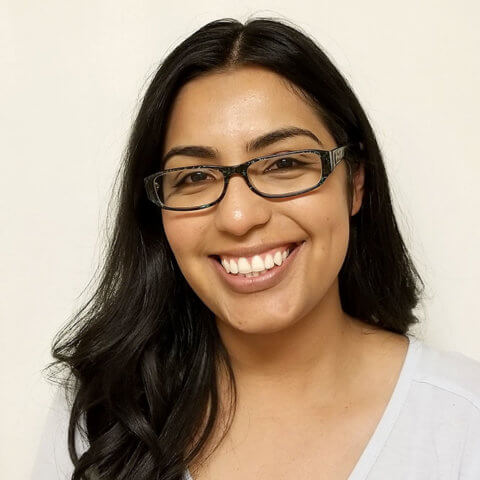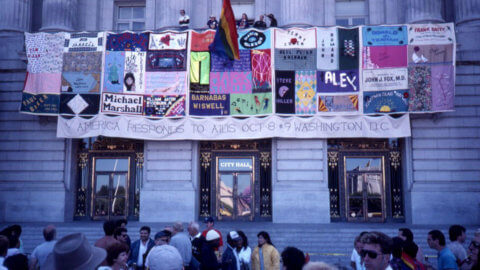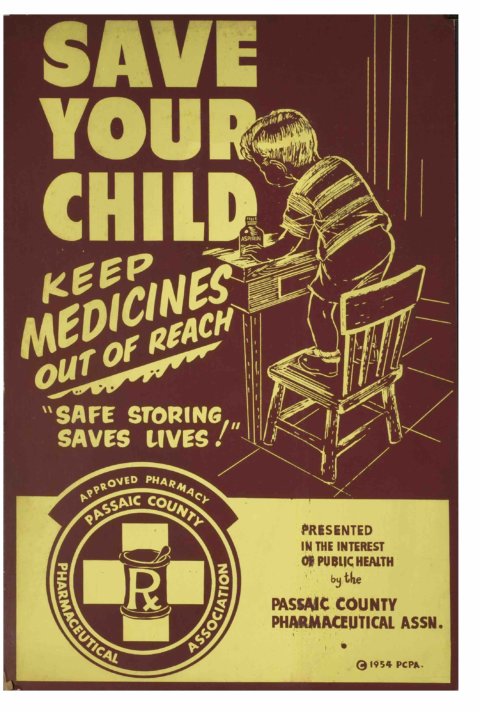October is American Archives Month, and UCSF Archives and Special Collections is celebrating with a number of events and news items in the coming weeks to showcase our work as custodians of Health Sciences and UCSF History.
Tues October 1: exhibit | They Were Really Us: opening reception + self-guided tours
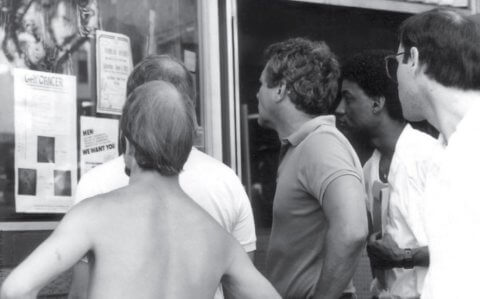
Join us at noon for an exhibit opening:
They Were Really Us: The UCSF Community’s Early Response to AIDS highlights ways individual professionals affiliated with UCSF acted to address HIV/AIDS following its outbreak in the 1980s. Their responses included working in and with the larger San Francisco community – and continue to impact HIV/AIDS care and research today. All materials in this exhibit are drawn from the AIDS History Project collections preserved in the UCSF Archives and Special Collections. Register
Tues October 1: Art for Remembrance
Join us in the Makers Lab for a morning of remembrance of loved ones affected by the HIV/AIDS epidemic. We will celebrate their lives through making quilts and buttons.
No experience necessary. We will have supplies ready and instructors to demonstrate quilting and button making techniques. If you have a digital image of the person you want to honor, please bring it.
Wed October 2: #AskAnArchivist Day
Join us and countless other repositories and Archival Institutions on Twitter using the hashtag #AskAnArchivist
Pose your burning questions and curiosities about our collections, services and archives work in general.
Follow us on Twitter @ucsf_archives
Fri-Sat, October 4-5 :SYMPOSIUM | Memory Lives On: Documenting the HIV/AIDS Epidemic
Join UCSF Archives & Special Collections for this interdisciplinary symposium exploring and reflecting on topics related to archives and the practice of documenting the stories of HIV/AIDS.
The task of documenting the history of HIV/AIDS and thinking about the present and future of the epidemic is daunting. The enormity and complexity of the stories and perspectives on the disease, which has affected so many millions of patients and families around the world, present significant challenges that demand continual reexamination. In examining and reflecting on our knowledge of the history of the HIV/AIDS epidemic and its future, we hope to improve our understanding of the true effects of the disease, and what it can teach us about future epidemics.
Fri October 18: archives talk | In Whose Best Interest? Children, Aspirin Poisoning, and the Pharmaceutical Industry, 1947-1976
Join University of Pennsylvania nursing faculty and health historian Cynthia Connolly, PhD, RN, FAAN for a look into how big business set its marketing sights on little customers with flavored aspirin.
In September 1947, the bright orange-colored St. Joseph Aspirin for Children joined them amid a wave of creative marketing for what became known as candy aspirin. An immediate success, flavored low dose aspirin reshaped medical, nursing, and parental responses to pediatric fever and pain. Unfortunately, however, its popularity with children resulted in an unintended consequence—a 500% increase in aspirin poison rates within a few years. While pediatricians and public health activists argued for warning labels and reconfigured bottles that made it harder for children to access the pills, the aspirin industry challenged the problem’s existence and mounted a public relations campaign aimed at confusing the public.
Speaker
Cynthia Connolly, PhD, RN, FAAN loved being a pediatric nurse practitioner and a clinical nurse specialist. But from the day she discovered that she could combine her love of nursing with healthcare history, she began to focus on understanding and interpreting the historical forces that have shaped children’s healthcare delivery and family policy in the United States.
Ongoing Exhibit: They Were Really Us
Upcoming News Items:
- Library Conversations: Charlie Macquarie, Digital Archivist
- Digging into Data Sets at the Industry Documents Library
